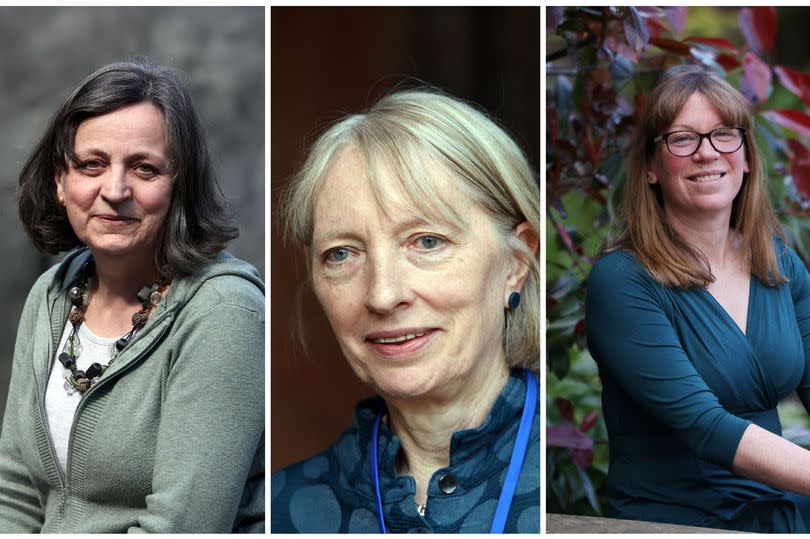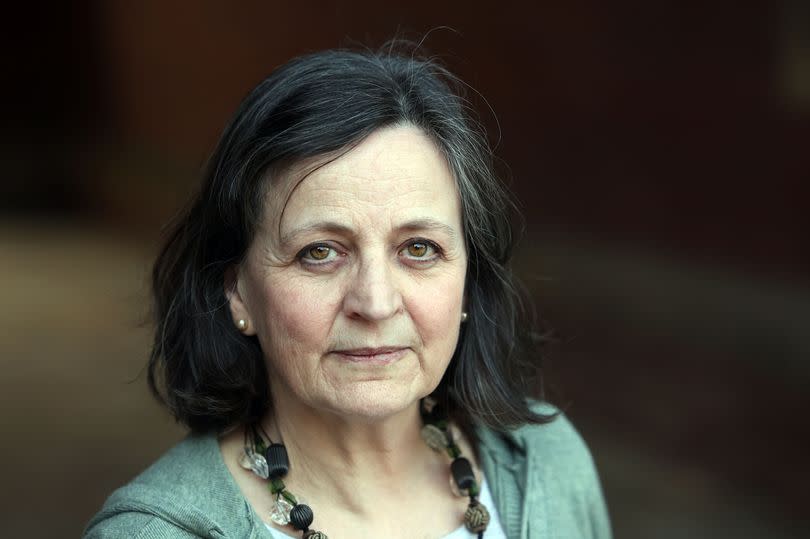'We're unnecessarily terrified of dying' - North East experts call for people to talk about death

The North East public is being invited to speak openly about dying - a subject we are "unnecessarily terrified about" - as part of a new research push.
Teams across universities and healthcare settings - including hospices - have formed the "RIPEN" network and are working to make sure that people's experiences of end-of-life care translate directly into improvements on the ground. Writer and former doctor Kathryn Mannix - who has long advocated for a healthier attitude to death and dying - told ChronicleLive how work to creating a "patient and public involvement group" had helped turn people's real-life experience into better care already.
She said: "One of the most important things is that this always needs to be a a really collaborative thing - it's asking what do the public feel is missing, what would be useful?
"The project is to start to think about what we know and what we don't know [about end-of-life and palliative care]. Everyone is confident that they can ask questions and raise concerns. And that can lead to good questions and better understanding.
"The PPI has been running for about two years. We started in the tail-end of Covid. What we are starting to see are the questions being generated and leading to researchers It's also about how will we make sure that what we find out from the research goes back into the health and care system.

"We would really welcome members of the public getting involved and raising new questions and ideas for discussion - perhaps about a particular issue with care they have experienced - or maybe it's an example of something where say a nurse has done something wonderful in their care and they think everyone should be doing that."
And Dr Mannix said work like this was vital in demystifying death. She has written books on the topic and given public talks, and added: "The death rate in the UK is 100%.The way we talk about dying matters. That's why I do storytelling. We have forgotten about what ordinary dying looks like. We don't know what it's like and we are unnecessarily terrified of it."
The retired medic said she had spent her whole career working alongside - and learning from - people who were dying and their families - and said that the right care and support at the time was vital. She added that working with patients and their families now to further research would make a huge difference.
RIPEN has been formed by the North East's "applied research collaboration", part of the National Institute for Health and Care Research (NIHR).
The idea is to put together a "large and diverse" group to bring a range of backgrounds and experiences to the attention of medics and researchers. Dr Mannix said; "Good research can help us to improve the quality of care we provide, but our research needs to be grounded in the real-world."
Prof Barbara Hanratty of Newcastle University leads RIPEN. She said: "We want to support the development of the research network so we can support and promote palliative care. We have had some early successes and we have been putting in place the building blocks we need to make sure that we are It's a specialism and an area of health care that can be quite poorly resourced."
Examples thus far include the work of Dr Felicity Dewhurst - who works across St Oswald's Hospice and Newcastle University, and helps run the hospice's Combined Supportive Care Service - and is now the UK's first NIHR fellow in palliative care.
She said it was important the sector was not a "Cinderella" service, and added that researchers and clinicians want to use research and the experiences of patients and their families to improve the care people get - and fight for a fairer distribution of funding.
Prof Hanratty and palliative healthcare consultant Dr Katie Frew organised a conference sharing the work that RIPEN has accomplished so far.
Dr Frew added they had shared the work of experienced and early-career researchers working in the field - adding: "It's been a ver inspiring day." She continued: "People generally don't like talking about dying. It's becoming more common but it's still not an area people are comfortable with"
To find out more about sharing your experiences and joining the RIPEN patient and public involvement network, you are asked to please email arcnenc@cntw.nhs.uk.

 Yahoo News
Yahoo News 
